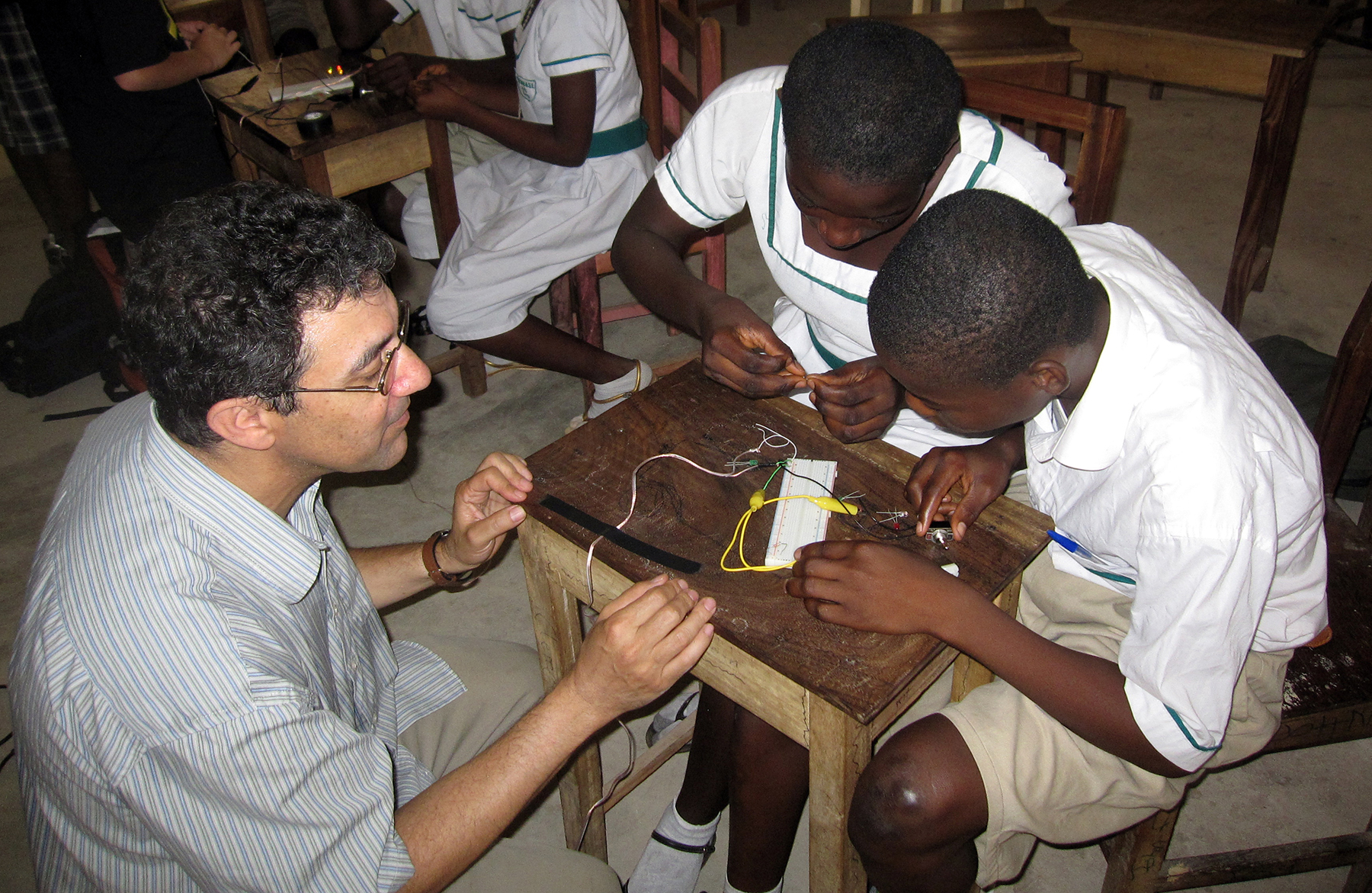Seminar focuses on use of science and innovation to embrace creativity in underserved populations

The role of creativity in low-income communities and how it connects to engineering, science, and innovation is the focus of the Institute for Creativity, Arts, and Technology’s upcoming ArtsFusion seminar.
Ron Eglash will lead the talk, “Generative Justice: The Right to Innovation,” on Wednesday, Feb. 12, at 5:30 p.m.
The talk will be held in the Cube, located within the Moss Arts Center at 190 Alumni Mall. The event is free and open to the public.
Social movements often focus on opposing injustices in housing, health, and other resources through “top-down” government action, also known as distributive justice. It is also important to think about justice in terms of “bottom-up” creativity, as well, Eglash explains. The concept of generative justice refers to efforts that recognize that many low-income communities, while poor in financial resources, offer cultural capital that can become the basis for innovative contributions to more sustainable and equitable forms of living.
Eglash’s presentation will describe the intersections between generative justice and engineering thorough the “Triple Helix” project. Eglash serves as principal investigator on the National Science Foundation-funded project, which highlights both the successes and challenges encountered during the development of this technosocial framework.
“Triple Helix” brings together graduate fellows in science and engineering with local community activists and elementary, middle, and high school educators to seek new approaches to putting science and innovation in the service of under-served populations.
Eglash will also be leading the workshop, “How to do transdisciplinary innovation,” with Matt Wisnioski, an assistant professor in the Department of Science and Technology in Society in the College of Liberal Arts and Human Sciences on Wednesday, Feb. 12, from 1:30 to 3:15 p.m. in the Institute for Creativity, Arts, and Technology’s Merryman Family Learning Studio, located in the Moss Arts Center.
Eglash is a professor of science and technology studies at Rensselaer Polytechnic Institute. He received a Fulbright postdoctoral fellowship to support his field research on African ethnomathematics, which is the topic of his book, “African Fractals: Modern Computing and Indigenous Design,” as well as a recent TED talk.
Eglash’s course topics range from a hands-on studio for design of educational technologies to graduate seminars in social studies of science. Eglash has created a collection of software design tools to help students learn standards-based math and computing as they simulate the original artifacts and develop their own creations. The software can be downloaded for free.
Presented by the Institute for Creativity, Arts, and Technology, ArtsFusion is a series of thought-provoking events that bring cutting-edge artists, scientists, engineers, and designers to the Virginia Tech campus to explore topics across disciplines. ArtsFusion events take place monthly during the academic year.
Parking is available in the North End Parking Garage on Turner Street. Limited street parking is also available. Parking on Alumni Mall is free on weekdays after 5 p.m. and on weekends.




